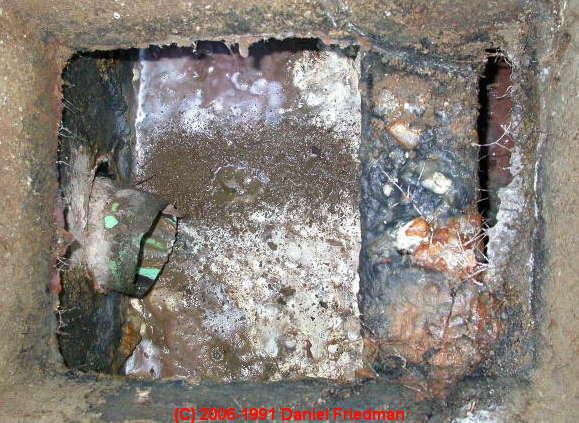A septic tank baffle clog occurs when debris or solids block the baffle, hindering proper flow in the septic tank system. This issue can lead to sewage backup and potential damage to the tank and drain field.
Regular maintenance and monitoring of the septic system can help prevent baffle clogs and ensure its efficient operation. In this article, we will discuss the causes, signs, and solutions for septic tank baffle clogs, as well as the importance of professional inspection and maintenance in avoiding costly repairs.
By understanding the potential problems and taking proactive measures, homeowners can maintain a healthy septic system and avoid major disruptions to their daily lives.

Credit: inspectapedia.com
Table of Contents
Septic Tank Baffle Clog
Dealing with a septic tank baffle clog can be a frustrating and messy problem. Neglecting routine maintenance can lead to a buildup of solids, causing the baffle to become clogged. To prevent this issue, regular pumping and inspection of the tank are essential.
Additionally, being mindful of what goes down your drains is crucial. Avoid flushing non-biodegradable items or excessive amounts of grease and oil. Another preventive measure is to install a filter or effluent screen in the outlet of the septic tank.
This will help catch any solids before they reach the baffle. In case you encounter a baffle clog, it’s best to call a professional septic system technician who can safely unclog the baffle and ensure proper functioning of your septic system.
Regular maintenance and vigilance are the keys to keeping your septic tank free from baffle clogs.
Frequently Asked Questions Of Septic Tank Baffle Clog
How Do I Know If My Septic Tank Baffle Is Clogged?
If you’re experiencing slow drainage, foul odor, or sewage backup, it might indicate a clogged baffle.
What Causes A Septic Tank Baffle To Clog?
Common causes include accumulation of sludge, grease, debris, or solids that obstruct the baffle’s inlet or outlet.
Can A Septic Tank Baffle Be Unclogged?
Yes, a professional can use techniques like hydro jetting or mechanical removal to clear the clogged baffle effectively.
How Often Should I Inspect My Septic Tank Baffle?
Regular inspection every 1-3 years can help you catch potential clogs or issues before they worsen.
Are There Any Preventive Measures To Avoid Baffle Clogs?
Regular septic tank pumping, avoiding excessive use of harsh chemicals, and proper disposal of waste can prevent clogs.
What Happens If A Septic Tank Baffle Remains Clogged?
A clogged baffle can cause sewage backup, damage to your septic system, and potential health hazards.
Can I Unclog The Septic Tank Baffle Myself?
It is recommended to hire a professional as diy attempts may damage the baffle or worsen the problem.
Conclusion
Properly maintaining your septic tank baffle is crucial for the overall functioning of your septic system. Neglecting to address baffle clogs can lead to a range of serious issues, such as backups, odors, and even environmental contamination. Regular inspection and cleaning of the baffle can prevent clogs and ensure the efficient flow of wastewater.
Understanding the causes and signs of a baffle clog is essential in taking proactive steps to prevent costly damage and repairs. Remember to avoid putting non-biodegradable items, excessive grease, and chemicals down your drains. Instead, focus on proper waste disposal and using septic-safe products.
By sticking to these best practices, you can maintain a trouble-free septic system and enjoy peace of mind. Stay vigilant, address issues promptly, and consult a professional when needed to keep your septic tank baffle functioning optimally.